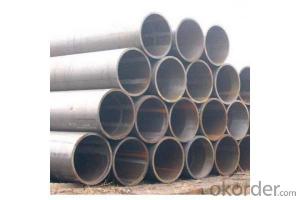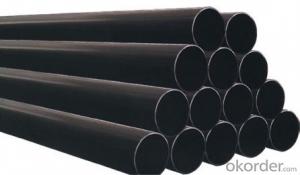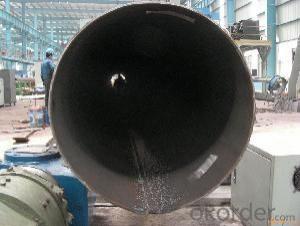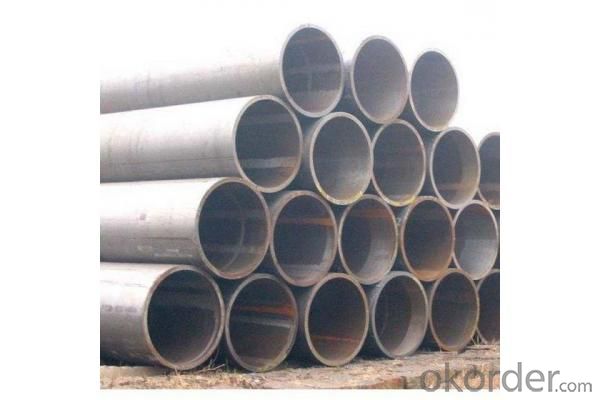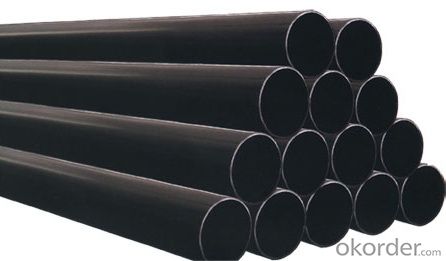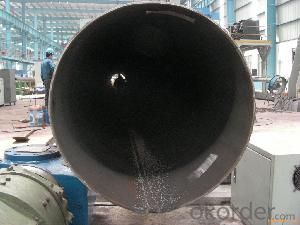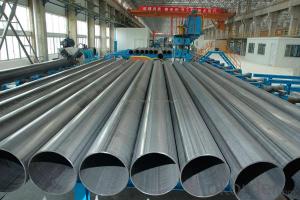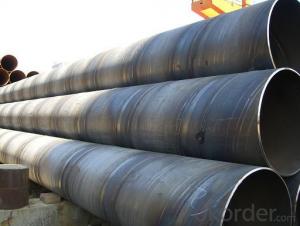LSAW SSAW CARBON STEEL PIPE ASTM API 16’‘
- Loading Port:
- Tianjin
- Payment Terms:
- TT OR LC
- Min Order Qty:
- 1 m.t.
- Supply Capability:
- 3000 m.t./month
OKorder Service Pledge
OKorder Financial Service
You Might Also Like
Packaging & Delivery
Packaging Detail: | Normal exporting packing,in container or bulk vessel or as per clients' request |
Delivery Detail: | 2 months after confimed contract |
Specifications
Large Diameter API 5L X70 PSL2 LSAW Steel Pipe
Grade: X42, X46, X50, X52, X60, B, C
OD: 1.5"-28"
WT: SCH10-SCH160
Large Diameter API 5L X70 PSL2 LSAW Steel Pipe
Specifications:
u Standard: API 5L
u Grade: B, C, X42, X46, X50, X52, X56, X60, X65, X70, X80
u OD: 1.5"-28"
u WT: SCH10-SCH160
u Length: 5-12m
u Ends Finish: plain end, bevel end, grooved end
u Surface Treatment: bare, black varnished, oiled finish, red color, anti-corrosion, 3PE, FBE or epoxy coating
u Technique: hot rolled or cold drawn
u Application: api 5l steel pipe for conveying oil, water, gas
u Invoicing: based on theoretical weight or actual weight
u Payment Terms: L/C at sight, T/T or Western Union
u Trade Terms: FOB, CFR, CIF
u Certification: ABS manufacturing assessment, ABS design assessment, API 5CT, API 5L, DNV manufacturer certificate, ISO9001 quality management system certificate, ISO14001 environment management system certificate, GB/T28001 occupational health and safety management system certificate, A1 class manufacturing license of special equipment certificate, CCS, GL, LR, SGS, TüV, PDE
- Q: How do steel pipes compare to other materials, such as PVC or copper?
- Steel pipes have several advantages over other materials such as PVC or copper. Firstly, steel pipes are incredibly durable and strong, making them suitable for heavy-duty applications and high-pressure environments. Additionally, steel pipes have a longer lifespan compared to PVC or copper, as they are less prone to cracking, corrosion, or degradation. Steel pipes also provide better fire resistance and are more resistant to extreme temperatures. However, steel pipes can be more expensive and require professional installation due to their weight and rigidity. PVC pipes, on the other hand, are lightweight, affordable, and easy to install, but they may not be as durable or suitable for certain applications. Copper pipes offer excellent corrosion resistance and are commonly used for water supply systems, but they can be more expensive and require skilled labor to install. Ultimately, the choice between steel, PVC, or copper pipes depends on the specific requirements of the project and the desired balance of cost, durability, and performance.
- Q: How are steel pipes used in the automotive exhaust system?
- Steel pipes are used in the automotive exhaust system to transport and expel the exhaust gases from the engine. They are durable and resistant to high temperatures, making them suitable for this purpose. Steel pipes are often bent and welded together to form the exhaust system, ensuring a smooth flow of exhaust gases and minimizing any leaks.
- Q: Can steel pipes be used in extremely cold temperatures?
- Yes, steel pipes can be used in extremely cold temperatures. Steel is known for its strength and durability, making it suitable for various applications, including those in freezing conditions. However, it is important to note that steel contracts in cold temperatures, which may affect its dimensions and structural integrity. Therefore, proper insulation and precautions should be taken to prevent any potential issues such as cracking or leakage.
- Q: What's the difference between straight steel pipe and seamless steel pipe?
- The welded pipe is made of rolled steel plates, and small ones are straight welded, and big ones are spiral welded. Because the welded pipe has weld, the mechanical performance of weld is poor, so its applicable range is limited, but its price is cheap. Significant difference is that there are welded pipe, seamless steel pipe is not, of course, the welded pipe treatment of good, layman do not see the difference.
- Q: What are the different types of coatings used for steel pipes?
- There are several types of coatings commonly used for steel pipes, including epoxy coatings, polyethylene coatings, zinc coatings, and coal tar coatings. Each type of coating offers unique benefits and is used for specific applications to protect the steel pipes from corrosion and other forms of damage.
- Q: How are steel pipes used in data centers?
- Steel pipes are used in data centers for the installation of cooling systems, electrical wiring, and network cabling, providing a robust and reliable infrastructure to support the data center's operations.
- Q: Can steel pipes be used for water supply lines?
- Yes, steel pipes can be used for water supply lines. Steel pipes are durable and have high tensile strength, making them suitable for carrying water. However, it is important to ensure that the steel pipes are properly treated to prevent corrosion and rusting.
- Q: How are steel pipes used in the manufacturing of bridges?
- Steel pipes are commonly used in the manufacturing of bridges as they provide structural support and stability. They are used for various purposes such as creating the framework, supporting the weight of the bridge, and constructing the foundations. Additionally, steel pipes are also used in the construction of bridge railings and barriers, ensuring safety for pedestrians and vehicles.
- Q: How are steel pipes used in construction?
- Steel pipes are commonly used in construction for various purposes such as structural support, plumbing, and transportation of fluids and gases. They are used in building frameworks, bridges, and underground infrastructure, providing strength, durability, and flexibility. Steel pipes are often employed in plumbing systems for water supply and drainage. Additionally, they serve as conduits for conveying gas, oil, and other substances. Their versatility and strength make steel pipes an essential component in modern construction projects.
- Q: How are steel pipes protected against corrosion in marine environments?
- Steel pipes are protected against corrosion in marine environments through various methods such as applying protective coatings, using cathodic protection systems, and employing sacrificial anodes. These measures create a barrier between the pipe surface and the corrosive elements in the marine environment, thereby increasing the lifespan and integrity of the pipes.
Send your message to us
LSAW SSAW CARBON STEEL PIPE ASTM API 16’‘
- Loading Port:
- Tianjin
- Payment Terms:
- TT OR LC
- Min Order Qty:
- 1 m.t.
- Supply Capability:
- 3000 m.t./month
OKorder Service Pledge
OKorder Financial Service
Similar products
Hot products
Hot Searches
Related keywords
